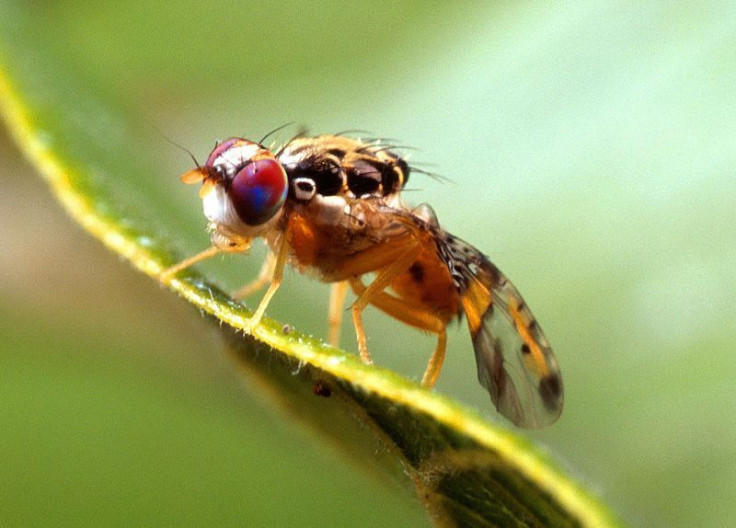How Fruit Flies Could Help Solve TBI And Concussion Problems In The NFL

In an effort to understand the immediate and long-term consequences — in cellular and molecular terms — of traumatic brain injuries (TBIs) in humans, especially NFL players, researchers are looking to a new fruit fly model, according to a recent study.
In the report, Barry Ganetzky and David Wassarman, both professors at University of Wisconsin-Madison, provide a first glimpse into how genetics play an important role in the outcome of TBIs in humans — all based on a fruit fly model.
The researchers observed the brain of a fruit fly because the basic mechanisms that affect the nervous system function are the same in fruit flies as they are in humans. To study the impact of traumatic brain injuries on fruit flies, Wassarman visited his local hardware store to develop a High-Impact Trauma (HIT) device that involved a stiff spring mounted on a piece of plywood, a polyurethane mat, and some Velcro, according to a University of Wisconsin-Madison press release. When the spring was bent and released, the vial (containing fruit flies) crashed into the mat to deliver a “mechanical blow” as the flies bounced against the vial wall. This process was set to mimic a typical brain injury in a football player.
Upon inflicting TBIs that mimic the injuries and symptoms of humans in these fruit flies, the researchers discovered that, like humans, only a few flies die from immediate impact. The flies that were treated showed many of the same physical consequences as humans who suffer from concussions and other TBIs like temporary incapacitation and loss of coordination.
The effects of a TBI were heavily contingent on age in the study. The older flies who sustained TBIs were more susceptible than the younger flies to the effects of the impact. In humans, patients over the age of 60 or those under the age of 2 have the worst TBI prognosis even if they suffer the same injury as someone who is not in those age groups, according to traumaticbraininjury.com. Infants are still growing physically and developing their brains, while the elderly are more susceptible to physical and cognitive decline with age. A TBI can thus significantly impact cognitive functioning for both age groups.
While age remains crucial in determining the effects of TBIs, the researchers found that genetics does play a role in the outcome of a TBI. This was confirmed by the high degree of variability that was seen among the diverse groups of fruit flies. The researchers’ findings could help explain why all potential TBI drugs to date have failed in clinical trials despite the success rate they showed in individual rodent models.
"The heart of the problem of solving traumatic brain injury is that we're all different,” said Wassarman, Science Daily reports.
The researchers of the study hope that this model can be utilized to give accurate diagnoses and treatments to TBI patients.



























